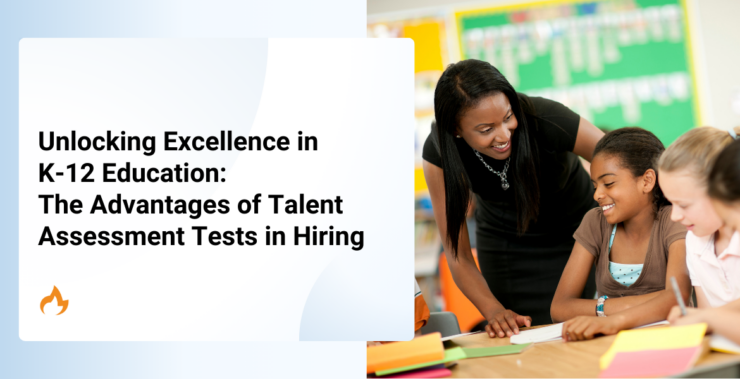In K-12 education, the impact of educators on student success is profound, making the quality of hires a critical factor in shaping the future of each learner. A meticulous hiring process that ensures the selection of highly qualified, passionate, and culturally aligned professionals not only elevates the educational experience but also contributes to the overall success and reputation of the school.
Talent assessment tests play a crucial role in improving the quality of hire for K-12 education by providing a standardized and objective means of evaluating candidates. Here’s how these assessments contribute to the hiring process:
Objective Evaluation of Skills and Competencies
Talent assessments allow K-12 schools to objectively evaluate candidates based on specific skills and competencies relevant to the education sector. Whether assessing teaching abilities, subject knowledge, or administrative skills, these tests provide a standardized measure, reducing subjective biases in the evaluation process.
Identifying Pedagogical Proficiency
For teaching roles in K-12, talent assessments can gauge a candidate’s pedagogical proficiency, including their understanding of teaching methodologies, classroom management skills, and ability to adapt to diverse learning styles. This ensures that the selected candidates possess the necessary skills to excel in an educational setting.
Assessing Cultural Fit
K-12 schools often emphasize a specific educational philosophy or cultural ethos. Talent assessments help evaluate a candidate’s alignment with these values, ensuring a cultural fit with the school’s mission and vision. This is particularly important for creating a cohesive and collaborative educational environment.
Predicting Classroom Effectiveness
For teaching positions, talent assessments can include scenarios and simulations that mimic real classroom situations. This allows schools to predict a candidate’s effectiveness in managing a class, engaging students, and adapting to dynamic learning environments.
Screening for Specialized Skills
In K-12 education, specialized roles may require specific skills, such as technology integration, special education expertise, or language proficiency. Talent assessments can screen candidates for these specialized skills, ensuring that the selected hires meet the unique demands of their roles.
Data-Driven Decision Making
Talent assessment results provide valuable data for decision-making. Hiring teams in K-12 schools can analyze assessment scores alongside other factors, such as experience and credentials, to make informed decisions about candidate suitability. This data-driven approach contributes to selecting candidates who align closely with the school’s requirements.
Enhancing Predictive Validity
Talent assessments, when designed and validated effectively, enhance predictive validity in the hiring process. This means that candidates who perform well on assessments are more likely to succeed in their roles, contributing to the overall quality of hire.
Supporting Professional Development
In addition to hiring, talent assessments can be used for ongoing professional development. By identifying areas of strength and growth for educators and administrators, schools can tailor professional development plans to enhance the skills and effectiveness of their staff over time.
The bottom line is incorporating talent assessment tests into the hiring process, K-12 schools can ensure a more comprehensive and objective evaluation of candidates, leading to higher-quality hires who are better aligned with the unique demands of the education sector.












